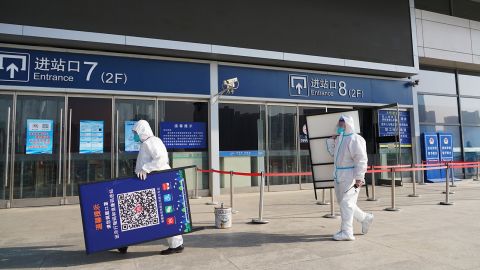Announcement by the State Bank of Pakistan comes as the country is in dire need of foreign aid.
Pakistan’s central bank says its foreign exchange reserves have fallen to $6.7bn, its lowest level in nearly four years as the country battles an economic crisis.
Thursday’s announcement by the State Bank of Pakistan (SBP) came as the country is in dire need of foreign aid to reduce its current account deficit as well as ensure enough reserves to pay its debt obligations for the next financial year.
The bank’s data show forex reserves have declined by $784m since late November, with the commercial banks holding another $5.8bn.
The last time forex reserves fell below $7bn was in January 2019 when they stood at $6.6bn.
In an interview on Thursday, SBP governor Jameel Ahmad said Pakistan’s economic crisis was mainly caused by this year’s catastrophic floods, the continuing Ukraine war and a rise in food prices globally.
Ahmad said Pakistan last week made a $1bn payment against its maturing bonds and other external debt repayments, which resulted in the depletion of foreign reserves.
Pakistan has to pay nearly $33bn to its foreign lenders in the coming financial year.
The central bank chief said the country received $500m from the Asian Infrastructure Investment Bank to offset its payment last week. He added that the government is negotiating to seek $3bn from a “friendly country”, without giving further details.
In a related development, Saudi Arabia’s finance minister Mohammed al-Jadaan on Thursday said his country “will continue to support Pakistan as much as we can”. Local media reports said Pakistan is likely to receive a $4.2bn package from Riyadh.
Meanwhile, an International Monetary Fund (IMF) review for the release of $7bn in a bailout package for Pakistan has been pending since September. A $6bn bailout was agreed on with the global financial body in 2019, with an additional $1bn promised earlier this year.
Finance minister Ishaq Dar last week said Pakistan was committed to completing the IMF programme while meeting external debt repayments on time, accusing the agency of delaying its review.
“Everything is in order and under normal circumstances. I have reassured them (IMF) that our ninth review is in order, and you should come. If they don’t come then we will manage, no problem,” Dar said in a television interview.
Dr Khaqan Najeeb, a former finance ministry adviser, told Al Jazeera that Pakistan needs the stalled IMF review to be completed immediately.
“The slow inflow of funds, heavy payments, and less than satisfactory financial account have all added pressure on the reserves which cover only a month and 10 days of import payment,” he said.
“To avert further pressure on reserves, Pakistan needs to ensure that the IMF programme stays on track, fund flows from bilateral and multilateral donors and friendly countries support in terms of deposits and rollovers,” he added.
Shahrukh Wani, an economist at the University of Oxford, said Pakistan may be struggling to convince the IMF that it is meeting bailout conditions.
“While there is little risk of immediate default on sovereign debt repayment, the trajectory is highly alarming with deep uncertainty on how the country will be able to shore up foreign exchange reserves to pay for imports and debt next year,” Wani told Al Jazeera.
He said if the situation does not change soon, an increasing number of Pakistani importers will likely be unable to pay for their financial obligations in foreign currency.
“Pakistan needs to undertake immediate credible steps that signal to the IMF and other lenders that the country will break out of its trajectory of perpetual crisis.”








